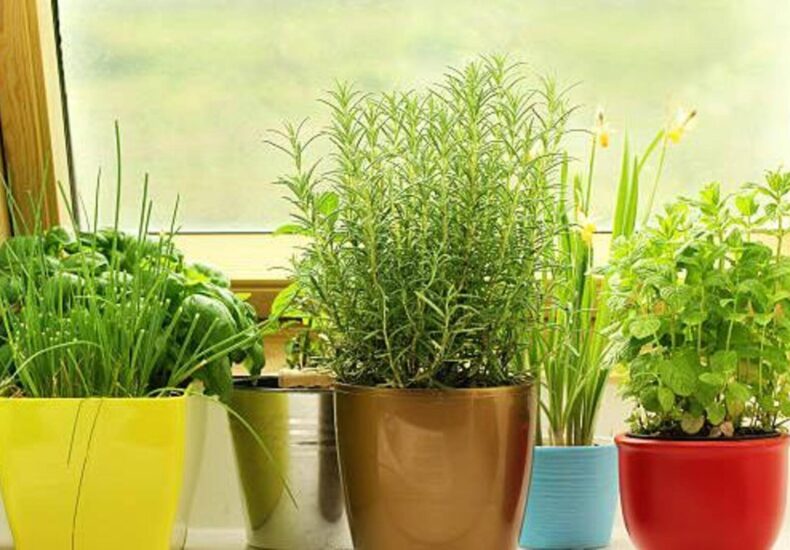
How to grow herbs at home
**How to Grow Herbs at Home**
*By Simran Jeet | Sep 30, 2025 · 12:08 pm*
Growing African herbs indoors can be a rewarding experience, providing fresh ingredients for cooking and natural remedies. These herbs are not only easy to grow but also bring unique flavors and aromas into your home. With the right conditions and care, you can cultivate a thriving indoor herb garden. Here are some practical tips to help you successfully grow African herbs indoors.
### 1. Choosing the Right Herbs
Selecting the right herbs is essential for indoor gardening success. Popular African herbs like basil, mint, and rosemary do well indoors. They require moderate sunlight and well-drained soil to flourish. Before planting, research each herb’s specific needs in terms of light, water, and temperature to ensure optimal growth.
### 2. Providing Adequate Light
Light is essential for indoor herb growth. Most African herbs need at least six hours of sunlight every day. If natural light is insufficient, you can use grow lights as an alternative. Place the lights about 12 inches above the plants and keep them on for 12 to 16 hours a day to mimic natural sunlight conditions.
### 3. Maintaining Proper Soil Conditions
The right soil mix is important for healthy herb growth. Use a well-draining potting mix enriched with organic matter like compost or peat moss. This helps keep moisture levels balanced while preventing root rot. Additionally, make sure pots have drainage holes to avoid waterlogging.
### 4. Watering Techniques for Healthy Growth
Proper watering is key to keeping your African herbs healthy indoors. Water them when the top inch of soil feels dry to the touch, but avoid over-watering as it may cause root rot. It’s best to use room-temperature water instead of cold water directly from the tap, which can shock the plants’ roots.
### 5. Fertilizing Your Indoor Herbs
Regular fertilization provides essential nutrients that indoor-grown African herbs may lack in nutrient-depleted soil over time. Use a balanced liquid fertilizer diluted to half-strength every four weeks during the growing season—spring through summer—for best results. This helps nourish your plants without overwhelming them.
By following these tips, you can enjoy fresh, fragrant African herbs right in the comfort of your home all year round!
https://www.newsbytesapp.com/news/lifestyle/how-to-grow-african-herbs-at-home/story
更多推荐
You may be interested
Study: reading can save your life
Avid readers may feel there’s nothing better than diving into...
Why some adults never want to have sex? Science decoded
**Life Without Sex: Insights from a Landmark Study on Lifelong...
5 ways to add celery leaves to your diet
**5 Ways to Add Celery Leaves to Your Diet** *By...
 The New York Times
The New York Times
- Department of Homeland Security Shuts Down, Though Essential Work Continues 2026 年 2 月 14 日 Madeleine Ngo
- Casey Wasserman Will Sell Entertainment Agency Amid Epstein Files Fallout 2026 年 2 月 14 日 Shawn Hubler, Ben Sisario and Emmanuel Morgan
- New Research Absolves the Woman Blamed for a Dynasty’s Ruin 2026 年 2 月 14 日 Andrew Higgins
- How China Built a Chip Industry, and Why It’s Still Not Enough 2026 年 2 月 14 日 Meaghan Tobin
- ’The Interview’: Gisèle Pelicot Shares Her Story 2026 年 2 月 14 日 Lulu Garcia-Navarro
- Ramping Up Election Attacks, Trump Does Not Let Reality Get in His Way 2026 年 2 月 14 日 Katie Rogers
- Consultants Offered Epstein Access to Top N.Y. Democrats if He Donated 2026 年 2 月 14 日 Jay Root and Bianca Pallaro
- ICE Agents Menaced Minnesota Protesters at Their Homes, Filings Say 2026 年 2 月 14 日 Jonah E. Bromwich
- Trump Administration Tells Judge It Will Release Gateway Funding 2026 年 2 月 13 日 Patrick McGeehan
- Florida Couple Arrested After Pickleball Match Turns Into a Brawl 2026 年 2 月 13 日 Neil Vigdor



Leave a Reply